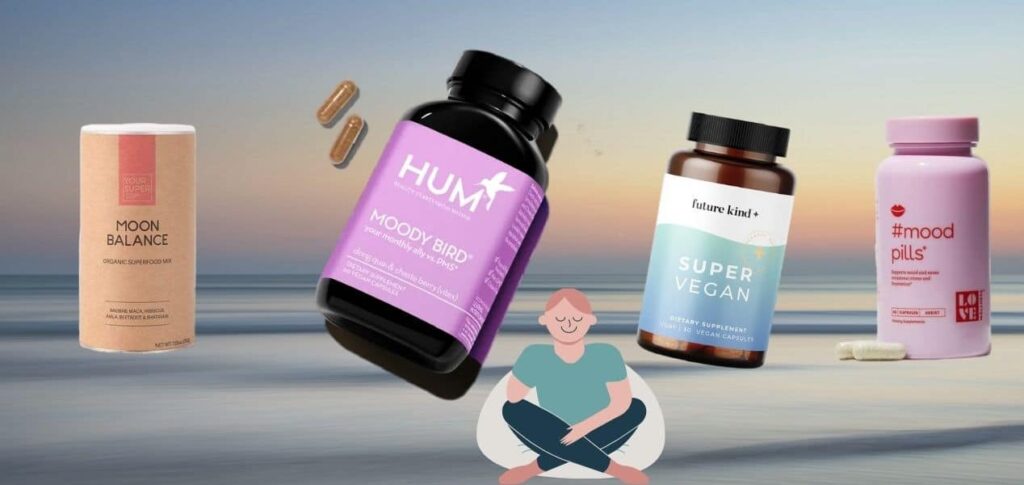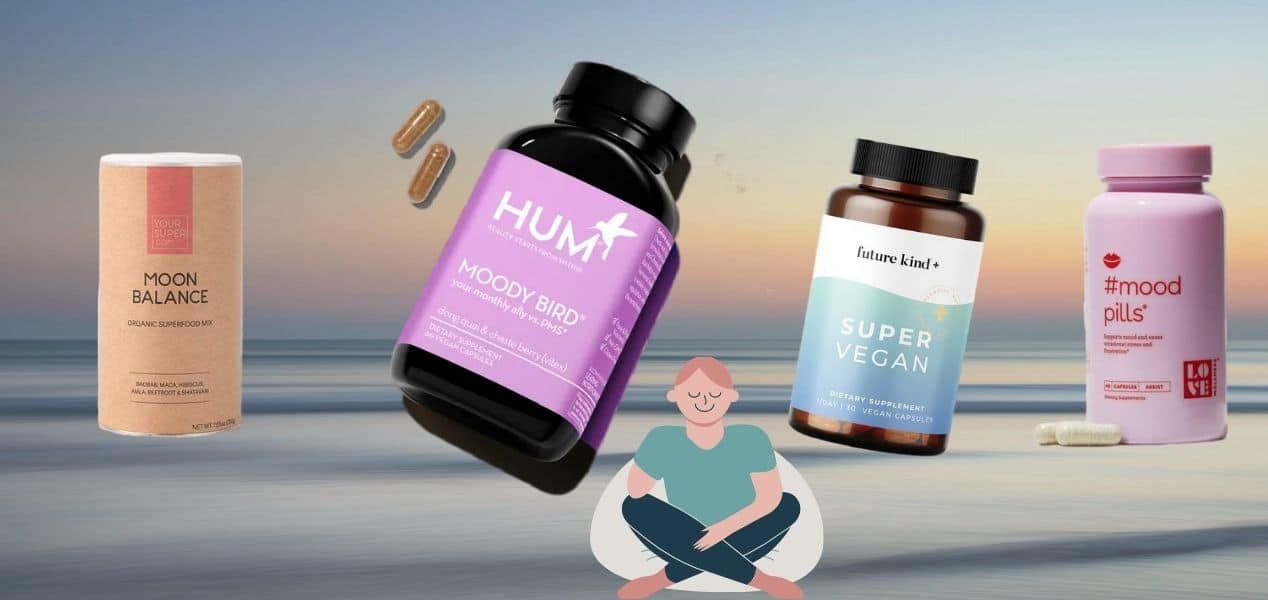
The Best Supplements for Hormonal Imbalance: A Comprehensive Guide
Hormonal imbalance. The very phrase can evoke feelings of frustration, confusion, and a desperate search for solutions. Millions of people, particularly women, experience the disruptive effects of hormonal fluctuations throughout their lives. From the mood swings of PMS to the challenges of menopause, hormonal imbalances can manifest in a wide range of symptoms, impacting everything from energy levels and sleep quality to weight management and reproductive health. While medical interventions are often necessary, many individuals are also exploring natural approaches, including supplements, to support hormonal balance. This comprehensive guide delves into the world of best supplements for hormonal imbalance, providing evidence-based information to help you make informed decisions about your health.
Understanding Hormonal Imbalance
Before diving into the specifics of supplements, it’s crucial to understand what hormonal imbalance actually entails. Hormones are chemical messengers that travel through the bloodstream, coordinating various bodily functions. When these hormones are out of sync – either too high or too low – it can lead to a cascade of problems. Common causes of hormonal imbalance include stress, poor diet, lack of sleep, environmental toxins, and underlying medical conditions. Symptoms can vary widely but often include:
- Irregular menstrual cycles
- Mood swings, anxiety, and depression
- Weight gain or difficulty losing weight
- Fatigue and low energy
- Sleep disturbances
- Acne and skin problems
- Hair loss
- Digestive issues
It’s important to consult with a healthcare professional to determine the underlying cause of your hormonal imbalance and to rule out any serious medical conditions. They can perform blood tests to assess your hormone levels and recommend the most appropriate course of treatment. Self-treating with supplements alone is not recommended and can potentially be harmful.
Top Supplements for Hormonal Balance
While supplements can be a valuable tool in supporting hormonal health, it’s essential to remember that they are not a magic bullet. They work best when combined with a healthy lifestyle, including a balanced diet, regular exercise, and stress management techniques. Here are some of the best supplements for hormonal imbalance, backed by scientific evidence:
Magnesium
Magnesium is an essential mineral involved in hundreds of bodily functions, including hormone production and regulation. It plays a crucial role in managing stress, which can significantly impact hormonal balance. Studies have shown that magnesium supplementation can help improve mood, reduce anxiety, and promote better sleep – all of which can contribute to hormonal harmony. [See also: Stress Management Techniques for Hormonal Balance]
Dosage: The recommended daily intake of magnesium is around 400mg for men and 310mg for women. However, individual needs may vary. It’s best to start with a lower dose and gradually increase it as tolerated. Magnesium glycinate is often recommended as it is well-absorbed and less likely to cause digestive upset.
Vitamin D
Vitamin D is not just a vitamin; it’s also a hormone precursor. It plays a vital role in hormone production and regulation, particularly in the synthesis of sex hormones like estrogen and testosterone. Vitamin D deficiency is widespread, and studies have linked low vitamin D levels to hormonal imbalances, including PCOS (polycystic ovary syndrome) and infertility. Supplementing with vitamin D can help improve hormone levels and alleviate related symptoms.
Dosage: The recommended daily intake of vitamin D varies depending on individual needs and sun exposure. A blood test can determine your vitamin D levels and guide appropriate supplementation. Generally, a daily dose of 1000-2000 IU is recommended for adults.
Omega-3 Fatty Acids
Omega-3 fatty acids, particularly EPA and DHA, are essential fats that play a crucial role in reducing inflammation and supporting overall health. Inflammation can disrupt hormone balance, and omega-3s can help to mitigate this effect. Studies have shown that omega-3 supplementation can improve insulin sensitivity, reduce testosterone levels in women with PCOS, and alleviate symptoms of PMS. These are definitely some of the best supplements for hormonal imbalance, due to their wide-ranging effects.
Dosage: The recommended daily intake of omega-3s is around 1-2 grams of EPA and DHA combined. Fish oil supplements are a common source, but algae-based supplements are also available for vegetarians and vegans.
Adaptogens
Adaptogens are a class of herbs that help the body adapt to stress. They work by modulating the body’s stress response system, helping to regulate cortisol levels and improve overall resilience. Several adaptogens have been shown to be beneficial for hormonal balance, including:
- Ashwagandha: This herb has been used for centuries in Ayurvedic medicine to reduce stress, improve energy levels, and support thyroid function. Studies have shown that ashwagandha can help lower cortisol levels, improve sleep quality, and reduce anxiety.
- Rhodiola Rosea: This adaptogen can help improve mental and physical performance, reduce fatigue, and enhance mood. It has also been shown to have beneficial effects on hormone balance, particularly in women with stress-related hormonal imbalances.
- Holy Basil: Also known as Tulsi, holy basil is another adaptogen that can help reduce stress, improve mood, and support immune function. It has also been shown to have anti-inflammatory and antioxidant properties.
Dosage: The dosage of adaptogens varies depending on the specific herb and individual needs. It’s best to start with a low dose and gradually increase it as tolerated. Consult with a healthcare professional or herbalist for personalized recommendations.
Probiotics
The gut microbiome plays a significant role in hormone regulation. An imbalance in gut bacteria can disrupt hormone production, metabolism, and elimination. Probiotics are beneficial bacteria that can help restore balance to the gut microbiome and improve overall health. Studies have shown that probiotic supplementation can improve estrogen metabolism, reduce inflammation, and support immune function – all of which can contribute to hormonal balance.
Dosage: The dosage of probiotics varies depending on the specific strain and individual needs. Look for a probiotic supplement with a variety of strains and a high CFU (colony-forming units) count. Consult with a healthcare professional for personalized recommendations.
DIM (Diindolylmethane)
DIM is a compound found in cruciferous vegetables like broccoli, cauliflower, and kale. It supports healthy estrogen metabolism by promoting the production of beneficial estrogen metabolites. DIM can help balance estrogen levels, reduce the risk of estrogen-related health problems, and alleviate symptoms of PMS and menopause. Many consider this one of the best supplements for hormonal imbalance, particularly estrogen dominance.
Dosage: The recommended dosage of DIM is around 100-200mg per day. It’s best to take DIM with food to improve absorption.
Chasteberry (Vitex)
Chasteberry is an herb traditionally used to treat menstrual irregularities and PMS symptoms. It works by supporting the pituitary gland, which regulates hormone production. Studies have shown that chasteberry can help reduce PMS symptoms like breast tenderness, mood swings, and bloating. It is a popular and potentially effective choice among best supplements for hormonal imbalance.
Dosage: The recommended dosage of chasteberry is around 20-40mg per day. It’s best to take chasteberry on an empty stomach in the morning.
Important Considerations
Before taking any supplements for hormonal imbalance, it’s crucial to keep the following considerations in mind:
- Consult with a healthcare professional: Always consult with a doctor, registered dietitian, or other qualified healthcare provider before starting any new supplement regimen. They can assess your individual needs, review your medical history, and advise you on the most appropriate course of treatment.
- Choose high-quality supplements: Not all supplements are created equal. Look for supplements from reputable brands that have been third-party tested for purity and potency.
- Be patient: It can take several weeks or even months to see noticeable results from supplements. Be patient and consistent with your supplement regimen.
- Monitor your symptoms: Keep track of your symptoms and report any changes to your healthcare provider.
- Lifestyle matters: Supplements are most effective when combined with a healthy lifestyle, including a balanced diet, regular exercise, and stress management techniques.
Conclusion
Hormonal imbalance can significantly impact your quality of life. While supplements can be a valuable tool in supporting hormonal health, they are not a replacement for medical treatment. By understanding the causes of hormonal imbalance, choosing the right supplements, and working with a healthcare professional, you can take proactive steps towards achieving hormonal harmony and improving your overall well-being. Remember to consider these best supplements for hormonal imbalance as part of a holistic approach to health.

